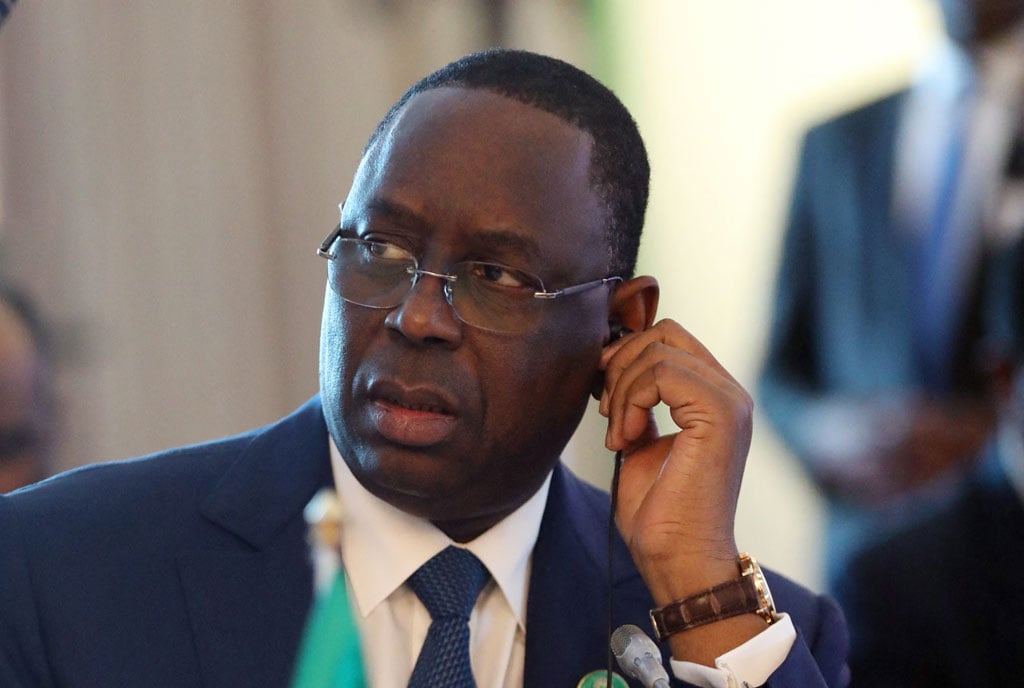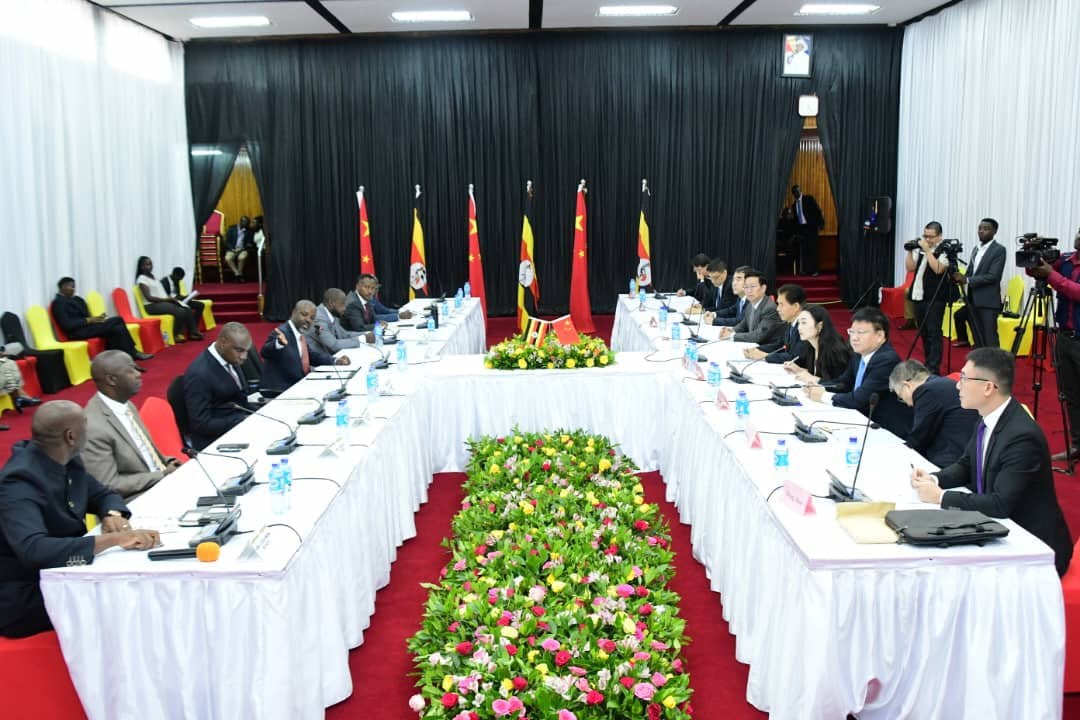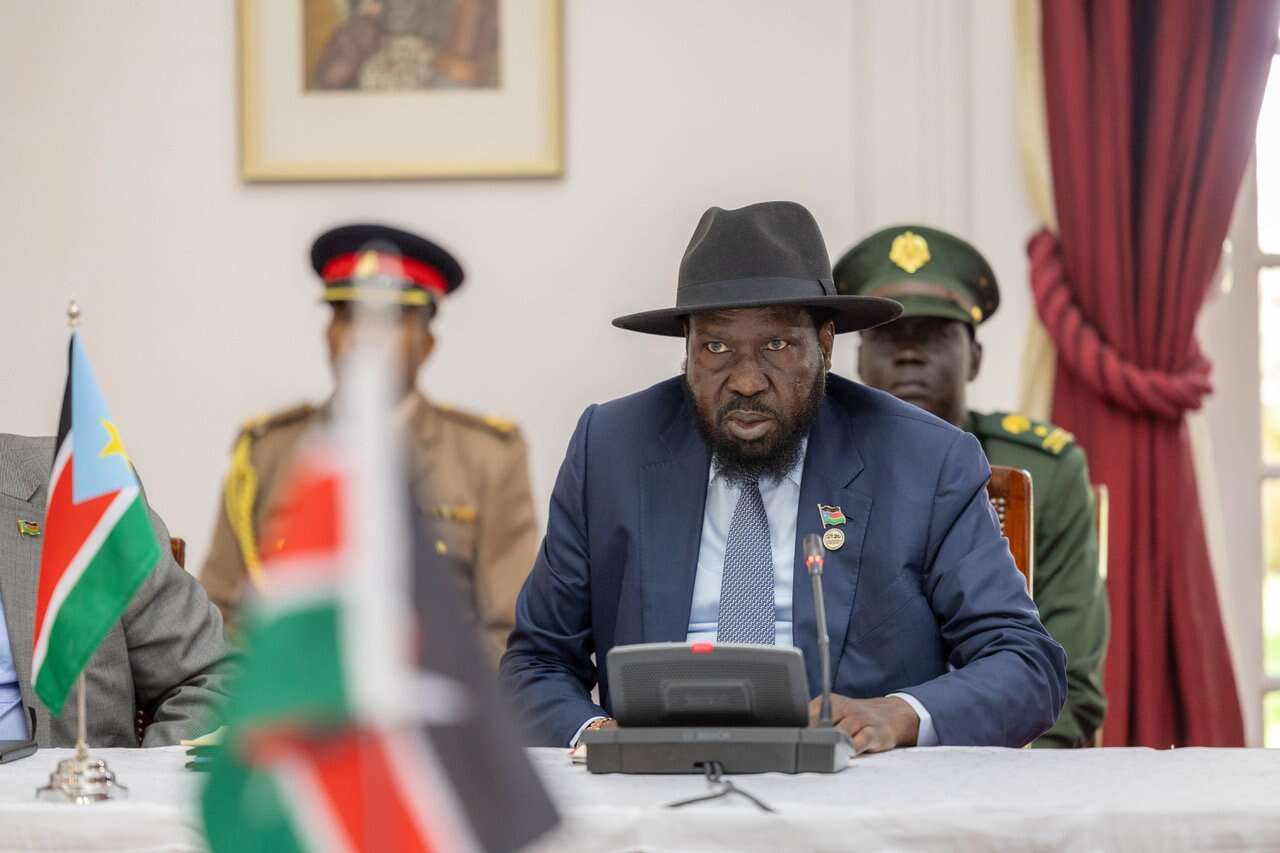Prime
We shall fight opponents of Islamic Banking – Muslims

Big day. Believers conduct prayers to celebrate Idd at Bufumbo Sub-county grounds in Mbale District yesterday. PHOTO BY MICHAEL WONIALA.
Muslim leaders yesterday vowed to defend Islamic Banking against those trying to block its introduction in the country.
Islamic Banking, passed by Parliament in 2016, allows interest free loans with no collateral security.
Sheikh Sulaiman Kakeeto, the leader of the Tabliq sect, used the Idd-al-Fitr prayers to caution leaders of other religions against attacking Islam.
“Allah told us to be peaceful but also allowed us to defend ourselves unlike the Bible which says if anyone slaps you on the right cheek, turn the other also to him,” he said during Idd prayers at Clock tower Mosque.
Sheikh Kakeeto also refuted claims that terrorists could be behind the Islamic Banking system and will use it to launch terror attacks and lure believers from other religions to Islamic faith.
“Other religions have their own banks and we have never interfered to question their operations. The same way they should not come to question how the banking system will operate,” Sheikh Kakeeto said.
The Catholic Church in Uganda owns Centenary Bank while the Anglican Church has equity partnership with private-owned Equity Bank, whose headquarters are housed at the Church House of the Anglican Church of Uganda.
UJCC raise questions
Last week, Christian leaders under Uganda Joint Christian Council (UJCC) asked the government to halt implementation of Islamic Banking until they have understood its purpose and how it will work.
“Parliament passed the Islamic Banking Act but it is still an issue of concern to all of us, including the Muslims themselves because we do not know how this is going to work,” the Archbishop of Kampala Catholic Archdiocese, Cyprian Kizito Lwanga, said on behalf of his colleagues last week.
However, their Muslim counterparts yesterday hit back, saying the call to halt Islamic Banking is absurd.
Mufti Shaban Mubajje, while delivering his Idd-al-Fitr message at Uganda National Mosque at Old Kampala yesterday, wondered why Christian leaders should be aggrieved by a project that is aimed at helping Muslims.
“Our religion does not allow paying of interest while repaying loans. We asked Islamic Banking as Muslims. Why should people get irritated by pepper they have not eaten?” Mufti Mubajje said referring to the remarks by the Christian clerics.
UJCC is a Christian faith based ecumenical organisation that was established in 1963 and registered as a trustee under the Trustees Incorporation Act. It brings together Christians of Anglican, Catholic and Pentecostal faiths.
Mufti Mubajje added that the law on Islamic Banking was passed by Parliament and government should ensure it is operational because it will benefit many people.
He urged Muslims to support Islamic Banking in Uganda.
While hosting Muslims to a luncheon at his home in Kibuli, Prince Kassim Nakibinge, the titular head of the Kibuli-based Muslim faction, also castigated the Christian clerics for opposing Islamic Banking.
He said they should have sought audience with the Ministry of Finance and Bank of Uganda that worked on the implementation of the Islamic Banking rather than attempting to block the banking system.
Prince Nakibinge, a renowned banker, also said even in England, the home of the head of the Anglican religion, Islamic Banking is working well.
“Christian clerics should not be driven by stereotypes against Muslims in the country” he said.
The 3rd deputy Prime Minister, Gen Moses Ali, assured Muslims that the implementation of Islamic Banking is in advanced stages.
Guide to islamic banking
Principles. Islamic banking is guided by Shari’ah principles as laid down in Islamic commercial law. Islamic banking applies only a portion of Shari’ah which relates to commercial transactions.
It allows access to interest free loans without requiring the borrower to deposit collateral/security with the bank. It relies on the viability of the commercial project and less on collateral for recovery of the loan.



